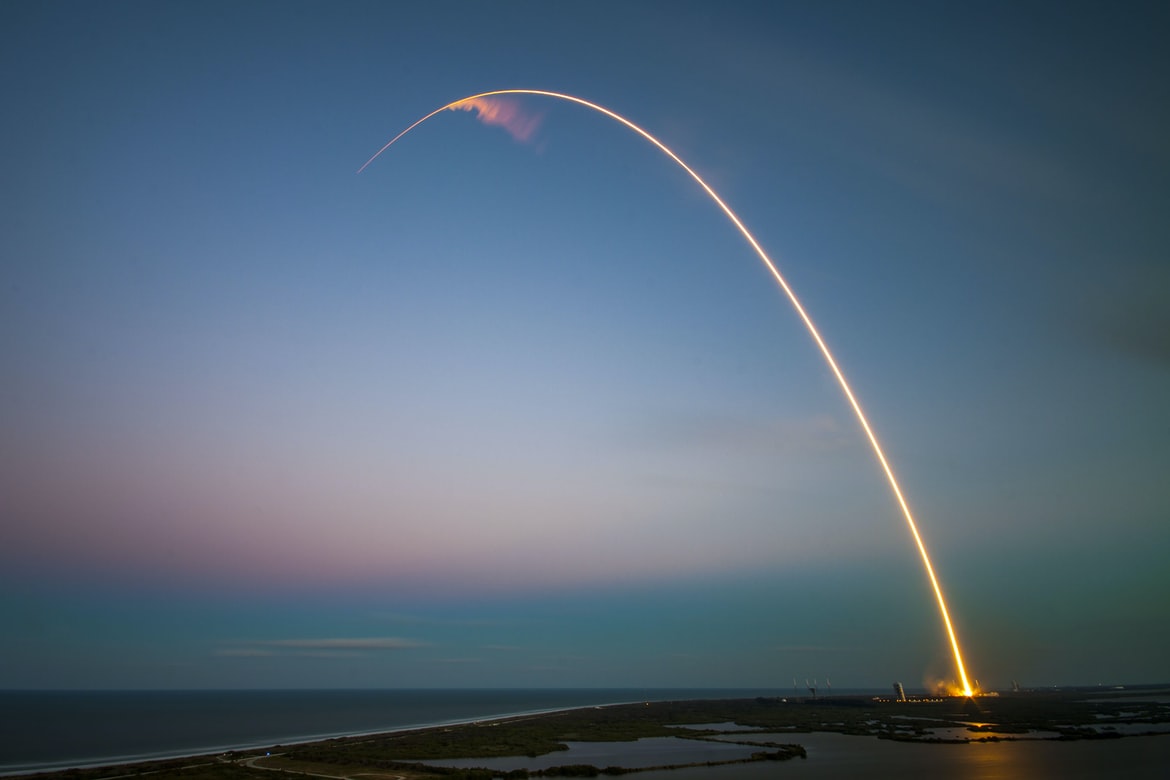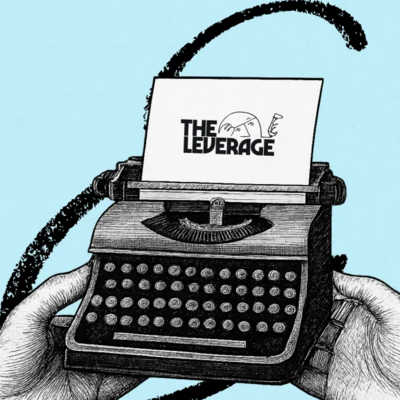
Greedy capitalist that I am, when I watch a SpaceX rocket launch my first thought is usually, “Who is making money off of this?” And although I’ll happily admit that my question is somewhat short-sighted and misses the majesty of mankind breaking gravity’s hold, that doesn’t mean it isn’t totally valid.
When a new market is formed, it is incredibly rare to have insights at its embryonic stages. Only once it has reached a sufficiently developed state will the lights be turned on and the public markets get to take a look. The delegation of profits within a space (dumb pun, sorry) are usually fully decided by that point.
Because of the SPAC boom, we now have a chance to see a market grow up in real time, right in front of our eyes. There have been a multitude of companies that have hit the public markets over the last year that rely on access to the cosmos. By examining these freshly born companies, we can gain insights into the space market and start to get a sense for who is making money, who isn’t, and why.
To write about this, I’ve teamed up with Ryan Duffy, editor of Payload. The team at Payload writes exclusively about space, and just launched a daily newsletter. Niche media publications are my jam and I love space so worth checking them out if you are into that sort of thing :)
And with that, lift off. (If you don’t like space puns, too bad, this piece is full of them.)
To Bankruptcy and Beyond
Momentus Space
“What SpaceX has successfully done—lower launch costs, and thus, barriers to access—but for getting around space once you’re up there.” That’s essentially the pitch for Momentus Space, a Y Combinator alum and publicly traded company as of August.
Momentus’ product is *theoretically* transporting satellites and payloads between orbits. Though this is a nascent vertical, orbital transfer vehicles have already evolved conceptually to the point that multiple logistics analogies have cropped up to describe the core job: Space tug and tow truck are our favorites.
As an idea, space tugs make intuitive sense. Someone needs to shuttle satellites from their rocket drop-off spot to a rendezvous point elsewhere, transfer satellites to a different orbit entirely, and thereby extend the lifespan of aging, expensive spacecraft rather than replacing them.
The catch: Others are building this too and it’s not yet entirely commercially viable. Only one large space contractor—Northup Grumman—has successfully demonstrated tug/tow capabilities in space. And twice, to boot.
One differentiator for Momentus, supposedly, is its proprietary water plasma thruster. The technology helped the company raise tens of millions in VC funding. In late 2019, the company claimed a successful test of the water-based propulsion system in space. Note: Spoiler, they lied.
In October 2020, the company announced its intent to merge with Stable Road Acquisition Corp (SRAC). Not only does SRAC rhyme with SPAC, it also is one!
The initial SRAC SPAC would value the combined entity at ~$1.2 billion. Seeing that Momentus was a pre-revenue deep tech bet, this was a leap of faith that the company would be able to execute on its product roadmap, which is no easy thing in space, quicker than similar startups and larger aerospace incumbents.
Things started to go wrong at the beginning of the year. In January, Mikhail Kokorich, serial space entrepreneur and Momentus’ founder-CEO, resigned from the company. Momentus was being probed by the US government on national security grounds, due to Kokorich’s Russian nationality and foreign Momentus investors with ties to sanctioned Russians. The investigation could slow Momentus’ merger, at best, and mothball it at worst. So Kokorich walked away from the company and eventually sold his stake (along with another one of the company’s Russian cofounders).
But geopolitics weren’t the only holdup. The product roadmap as an issue, too. In July, the SEC charged Stable Road, its sponsor, its sponsor’s CEO, Momentus, and Kokorich for misleading claims ahead of the proposed merger. That’s a lot. Let’s unpack:
- According to the SEC, Kokorich soft-pedaled the extent to which his birthplace and nationality could stymie Momentus’ ability to operate and obtain key licenses in the US.
- Contrary to what Momentus told the public and investors, the in-space propulsion test was not successful. In fact, the test “failed to achieve its primary mission objectives,” the SEC said.
- Stable Road essentially rubber-stamped Momentus’ claims in filings and failed to perform obligatory due diligence.
All parties settled except Kokorich, who started a new space company and now resides in Switzerland.
This summer, Stable Road’s revised filing with the SEC cut Momentus’ post-merger valuation from $1.1 billion to $567 million. Momentus, which forecasts no 2021 revenue, projects a $5 million haul next year, and a 440x increase to ~$2.2 billion in five years.
While this is less categorical cautionary tale and more one-off peculiarity, it nonetheless illustrates the risks of pre-revenue, deep-tech bets tapping the public markets for cheap capital.
Momentus very well may not be a Nikola in sheep’s clothing. The company had inked a partnership with SpaceX, reserved five Falcon 9 rideshare missions, and apparently, signed contracts with customers. But much of that had been undone by this summer. As of June, Momentus claimed $66 million in contracts, down from $90 million last November.
Assume a counterfactual world without national security probes or SEC enforcement actions. Momentus would still need a lot to go right. It’d need to validate its water thrusters, in space, and began showing a path to commercial viability for its tugs. While orbital transfer services will likely be an integral contributor within a new space economy, it’s no surefire bet they’ll be a multibillion dollar market within five years. With an entirely clear new sector it is likely there are multiple technological approaches that will be successful, likely driving commoditization. It’s definitely not clear one company would be able to corner the entire market so early in its existence.
But Momentus is still breathing. At the time of this writing, the company’s market cap sits at roughly $900 million. The space tug company, which has plenty of work cut out for it, has some backers who are faithful or foolish enough to keep believing.
Ejecting Billionaires Into Outer Space
Virgin Orbit
Not to be confused with Sir Richard Branson’s other private spaceflight venture, Virgin Orbit is a satellite launch business. To nip any possible confusion in the bud, let’s establish the key difference between the two Virgin space SPACs:
- Virgin Galactic is in the business of bringing passengers to suborbital space. Aka rich dude space tourism. See example here.
- Virgin Orbit, meanwhile, delivers small satellite payloads to low-Earth orbit (LEO). See example here.
Some time this quarter, Virgin Orbit is expected to complete its SPAC merger and list on the Nasdaq, with an expected valuation of $3.2 billion.
Virgin Orbit has progressed at a rapid clip. It flew its final demonstration mission in January, during which its LauncherOne rocket successfully reached orbit. At the end of June, Virgin Orbit flew its first commercial mission, successfully delivering seven payloads to LEO for customers ranging from the Pentagon to a Polish startup.
That said, beyond the name, the two companies do have similarities. They promise to shake up the status quo by circumventing ground-based rockets altogether and launching from modified Boeing 747s. If that sounds like too much synergy to be a coincidence...Virgin Orbit spun out of Virgin Galactic back in 2017, so it could focus on catering to the small satellite market.
Virgin Orbit touts the benefits of flying with Cosmic Girl, its modified 747, and LauncherOne, its air-launched rocket, in a pitch that goes something like this. “We’re the cheapest bet out there. We’ll eventually be capable of launching from anywhere in the world with a tarmac and air traffic control. The air launch process is less likely to be derailed by pesky Mother Nature, while also less environmentally harmful.” Note: These pitches, for both frauds and successes, always sound good.
Like so many other SPACs, though, Virgin Orbit’s forward-looking revenue projections are where roadmaps strain credulity the most. The company projects to pull in $15 million this year, $70 million in 2022; $331 million in 2023...and clear $2 billion by 2026. Super easy, no problem whatsoever.
Even if Cosmic Girl and LauncherOne inspire a larger fleet that can cost-effectively launch at scale, they’ll require a considerable upfront investment.
“I don’t see how that business case closes,” Peter Beck, CEO of Rocket Labs, told Ars Technica last year. “How do you spend that much money and have a return on investment? And moreover, if you’ve spent that much money and you are where you are, maybe it’s time to have a re-think.”
Seeing that Rocket Labs and Virgin Orbit are going after the same commercial, government, and military customers, Beck has no incentive to talk positively about his competitor. Still, Rocket Labs has flown many more commercial missions than Virgin Orbit and other small rocket peers.
And the small launch market is getting crowded. By the same token, more small satellites are being launched than ever before. So, launch demand will continue to grow.
Virgin Orbit’s air-launched rockets afford it a real opportunity. There’s value in the ability to launch cheaply, quickly, reliably, and flexibly—so you can get to a specific orbit at a certain time, free of the tyranny of geography (spaceport locations) and supply (launch capacity). Plus, Virgin has successfully demonstrated its technology and flown commercial payloads, which is more than most peers can say.
As of June, Virgin Orbit said that it had five rockets in production and a manufacturing capacity of 20/year. The company said in August that it had ~$300 million in active contracts, ~$1.3 billion in active proposals, and over $2 billion in “identified opportunities.” While the latter two are naturally pretty nebulous, Virgin’s BD team does seem to be doing its job. But ultimately, what matters is when the contracts are signed, the money is wired, and satellites are launched.
SPAC proceeds may help Virgin Orbit scale its commercial launch capacity. But given Virgin’s already-sizable sunk costs, the company’s path to profitability could boil down to a race against time. When and if more small launch providers come online, they’ll exert a downward pressure on prices. The question then, boils down to whether air-launched rockets can beat ground-to-orbit alternatives on price or command a premium.
We are Detecting Signs of an Actual Business, Captain
Planet Labs
In July, SF-based Planet Labs announced that it would be the newest private space player to go public via SPAC. Following the merger, Planet will be valued at ~$2.8 billion.
Unlike some of its space SPAC contemporaries, Planet is already pulling in substantial revenues. The company made $100 million in the last fiscal year from a customer base of over 600, spread across 65 countries.
Planet is a leading player in the Earth Observation (EO) space. For our purposes, EO refers to the collection of planetary data from remote-sensing systems in space. EO use cases run the gamut: mapping soil moisture content, quantifying crop conditions, fighting wildfires, underwriting flood insurance, catching tax evasion, and identifying previously undetected missile sites. This list just scratches the surface of how EO is already being put to work.
While EO was exclusively the domain of governments and militaries not too long ago, it has rapidly commercialized in recent years. As far as space applications go, EO been...don’t say it, don’t say it...democratized.
Planet is a poster child of a revolution in small satellites and EO. Hatched by ex-NASA scientists in 2010, the startup has harnessed a series of powerful tailwinds:
- The forward march of Moore’s Law.
- The shift to mobile computing, which created economies of scale for billions of miniaturized processors, sensors, batteries, and wireless relays.
- The drop in launch costs.
- Vertical integration.
- CubeSats!
A Cubesat is a modular, cube-sized minisat. The concept was first proposed around 2000. The first CubeSats went to orbit three years later. By the time Planet was created, less than 100 were in space. Today, there are 1,600+ in orbit.
Planet operates a constellation of 200+ Doves and SuperDoves, the company’s term for its CubeSats. Planet calls this “the largest Earth observation satellite fleet ever.” The satellites are small but mighty, producing 3 million images 25 terabytes a day. Planet maintains a backlog of its imagery—and has an average of 1,500 pictures for every spot on Earth’s land mass.
The company designs and manufactures satellites itself. If one goes offline quickly, Planet can replace it much quicker than older, pricier EO equipment. Planet also iterates and prototypes rapidly, meaning it can integrate new sensors into LEO-bound satellites with truncated lead times.
But this is no winner-take-all market. EO is competitive. Even if it’s still early days for monetization in EO, it’s a space-to-Earth vertical with established players and credible challengers. Compare that to space-to-space applications and services, still dominated by government or large aerospace players, or in the early gestation phase and farther away from commercial viability.
Planet has a first-mover advantage, getting satellites into orbit quickly, then upgrading with better sensors when replacing decommissioned craft. All along, the company’s competitive advantage has been compounding in plain sight. Planet has built a longitudinal, indexable corpus of imagery of every spot on Earth. As the dataset grows, it improves Planet’s analytics products. When that happens, the platform gets more valuable to end users.
The virtuous cycle could be disrupted by other EO marketplaces, analytics providers, or constellation operators. Maybe all of that, end-to-end, wrapped up into one end-to-end solution, or maybe an alliance of convenience. Who knows?!
Perhaps the best way to conceptualize Planet as a business is to drop the space association for a sec. Planet is a software and data business with recurring revenue. 90% of Planet’s customers pay on an annual subscription basis. While the company is certainly not using commodity hardware and or off-the-shelf algorithms, it also didn’t need to spend hundreds of millions on R&D before it could ship a product. In many ways, it looks and feels like a software business...just one that’s also operating one of the largest EO constellations in the world.
It is somewhat telling that one of the best-performing businesses of all the space SPACs is the one as focused on problems on the ground and in the cloud as it is on the final frontier.
Where Do the Profits Go?
In many ways, the Space rush reminds us of the current discourse around Crypto. It is a market enrobed with aspirational language, that appeals to our foundational beliefs on how life should be. Crypto proclaims a future of independence and distributed power. Space companies claim a future of an interplanetary species, of Star Trek and Star Wars.
The beauty of markets is that, in the long run, they simply don’t care about sentiment. They care about the ability to solve problems and capture value. The current best in class space companies are the ones who are serving the problems of today. Launch (SpaceX) and Data (Planet) are ones that have been around for awhile.
As for the question of the future, we can rely on various frameworks (prominently Clayton Christensen’s the Law of Conservation of Modularity) to help forecast it. Profits accumulate to the layers of the value chain that have the highest barriers to entry and where problems are most acutely felt by customers.
Today we only discussed 3 easy examples, but if you read the S1s of the 10+ Space companies who came onto the markets over the last year or so, they all seem to believe that they are the ones who will capture the profit. Their financial forecasts almost universally proclaim billions of dollars of revenue are just around the corner.
Not to be overly negative, but it is unlikely that everyone wins.
Where the most profit is to be found in Space is not in supplying the components of businesses that are in Space, but in those companies who gain access to novel resources that literally can’t be found on Planet Earth. Note: This is the exact reason SpaceX is building a satellite internet network, not out of the goodness of their hearts, but because Launch will be competitive and lower margin in the years to come.
If this were the perfect piece, we could say “and so, invest in company X, Y, and Z to get mad returns.” The reality is that we don’t know what will happen.
If there is one primary takeaway from this article, it should be to examine these companies with a hard eye. Just because a business can escape the confines of gravity doesn’t mean it is immune to economic reality.
The Only Subscription
You Need to
Stay at the
Edge of AI
The essential toolkit for those shaping the future
"This might be the best value you
can get from an AI subscription."
- Jay S.
Join 100,000+ leaders, builders, and innovators

Email address
Already have an account? Sign in
What is included in a subscription?
Daily insights from AI pioneers + early access to powerful AI tools










Comments
Don't have an account? Sign up!